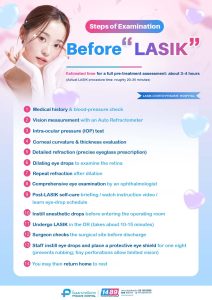- Reproductive Endocrinology & Infertility Center
About
The Reproductive Medicine Fertility Center was established to help individuals and couples achieve their dream of starting a family. Our center specializes in providing comprehensive fertility care for those struggling with infertility, women over the age of 35, individuals experiencing recurrent miscarriages, and couples at risk of genetic disorders.
With a team of highly experienced fertility specialists, we offer a wide range of advanced fertility treatments, including In Vitro Fertilization (IVF), Intracytoplasmic Sperm Injection (ICSI), and Intrauterine Insemination (IUI). Additionally, we utilize Preimplantation Genetic Diagnosis (PGD) and Preimplantation Genetic Screening (PGS) to screen for chromosomal abnormalities, significantly increasing the chances of a healthy pregnancy.
The Piyavate Hospital Reproductive Medicine Center is particularly renowned for its high IVF success rates, comparable to those in the United States and Europe. We continuously enhance our services by incorporating cutting-edge technologies such as Next Generation Sequencing (NGS), which allows for comprehensive chromosomal screening across all 24 chromosome pairs. This advanced technology enables the accurate detection of genetic abnormalities, increasing the chances of a successful and healthy pregnancy while minimizing the risk of hereditary diseases.
With a team of highly experienced fertility specialists, we offer a wide range of advanced fertility treatments, including In Vitro Fertilization (IVF), Intracytoplasmic Sperm Injection (ICSI), and Intrauterine Insemination (IUI). Additionally, we utilize Preimplantation Genetic Diagnosis (PGD) and Preimplantation Genetic Screening (PGS) to screen for chromosomal abnormalities, significantly increasing the chances of a healthy pregnancy.
The Piyavate Hospital Reproductive Medicine Center is particularly renowned for its high IVF success rates, comparable to those in the United States and Europe. We continuously enhance our services by incorporating cutting-edge technologies such as Next Generation Sequencing (NGS), which allows for comprehensive chromosomal screening across all 24 chromosome pairs. This advanced technology enables the accurate detection of genetic abnormalities, increasing the chances of a successful and healthy pregnancy while minimizing the risk of hereditary diseases.
Medical Services
- Fertility Consultation – Comprehensive guidance for individuals and couples facing infertility
- Infertility Diagnosis – Identifying the causes of infertility
- IVF (In Vitro Fertilization) – A highly effective solution for infertility treatment
- PGD (Preimplantation Genetic Diagnosis) – Genetic testing to prevent hereditary diseases
- PGS (Preimplantation Genetic Screening) – Chromosomal screening before embryo transfer
- IUI (Intrauterine Insemination) – Assisted insemination for fertility enhancement
- ICSI (Intracytoplasmic Sperm Injection) – Advanced technology for male infertility cases with low sperm count or poor sperm quality











